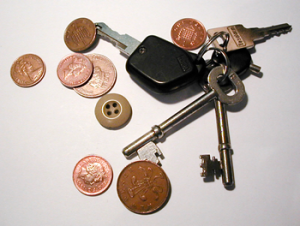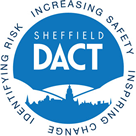Economic and Financial Abuse
If your partner tightly controls your money, or spends it selfishly and recklessly, you might be experiencing financial abuse.
Economic or financial abuse includes:
- Making you account for every penny you spend
- Making you ask for money when you need it
- Limiting you to an allowance
- Not letting you have a bank account
- Keeping you in the dark about family finances
- Denying you and the children basic things you need (like food, clothes, heating or bus fares)
- Spending money you don’t have on going out, alcohol, drugs, gambling or luxuries
- Stopping you from getting or keeping a job
- Making you work long hours to support their spending
- Stealing from you
- Taking your money and blaming you for it
- Running up debts in your name fraudulently (without you knowing)
- Making you take out loans under duress (against your will)
 If you can’t make ends meet, life is a daily struggle. You might lie awake worrying about how to pay bills or how you’ll feed the kids. You might feel unable to leave your partner because they control all the money and you have nothing. Or you might feel crippled by debts and unable to move on with your life.
If you can’t make ends meet, life is a daily struggle. You might lie awake worrying about how to pay bills or how you’ll feed the kids. You might feel unable to leave your partner because they control all the money and you have nothing. Or you might feel crippled by debts and unable to move on with your life.
It is very common for people experiencing domestic abuse to have less control over their finances and to be left with debts when the relationship ends. Sheffield specialist projects working with domestic abuse survivors find that their clients often have:
- Rent arrears from previous tenancies and current tenancies.
- High interest credit lending (from shops and door stop lenders)
- Less income than they should because they aren’t claiming all the benefits they are entitled to
If you think you are being affected by economic abuse, read the latest guidance on surviving economic abuse (April 2021).
Get free financial advice
In Sheffield there are several Neighbourhood Advice Centres offering free debt advice (details below). Advice Centres can help people prioritise which bills should be paid first (such as rent/mortgage, gas, electric, water, council tax and CCJs) and can negotiate repayments with credit companies.
More detailed advice around finances – guides
You Can Afford to Leave
A financial guide for women and children experiencing domestic violencefrom Refuge
Dealing with Debt
Sheffield Debt Support Unit debt advice
Neighbourhood Advice Centres in Sheffield with Debt Advice Workers
| Location | Address | Drop in day / time |
| Bawtry Road Advice Centre | 120-126 Bawtry Road, S9 1UE | Thursday 9.30am – 1pm |
| Chapel Street | 5 Chapel Street, Woodhouse, S13 7JL | Thursday 9.30 – 4pm |
| Darnall Primary Care Centre | 290 Main Road, S9 4QH | Wednesday 9.30 – 11.30 |
| Duke Street | 207 Duke Street, S2 5QP | Friday 9.30 – 4pm |
| Firvale Centre | Earl Marshall Road, S4 8LA | Tuesday 9 – 1pm |
| Hanover Medical Centre | 100 William Street, S10 2EB | Wednesday 1.30 – 3.30 |
| Learning Zone, Parson Cross | 320 Wordsworth Avenue, S5 8NL | Wednesday 10 – 1pm |
| London Road | 416 – 418 London Road, S2 4ND | Monday 9.30 – 4pm |
| Manor Library | Ridgeway Road, S12 2SS | Thursday 10 – 1pm |
| Spital Hill | 28 – 30 Spital Hill, S4 7LG | Tuesday 9.30 – 4pm |
| Stocksbridge Library | Manchester Road, S36 1DH | Thursday 10 – 1pm |
| Stubbin Lane | 9 Stubbin Lane, S5 6QG | Wednesday 9.30 – 4pm |
| Totley Rise Methodist Church | Grove Road, S17 4DJ | Tuesday 10 – 12noon |
| Advice Line | 03444 113 111 | Mon – Fri, 10am – 4pm |



